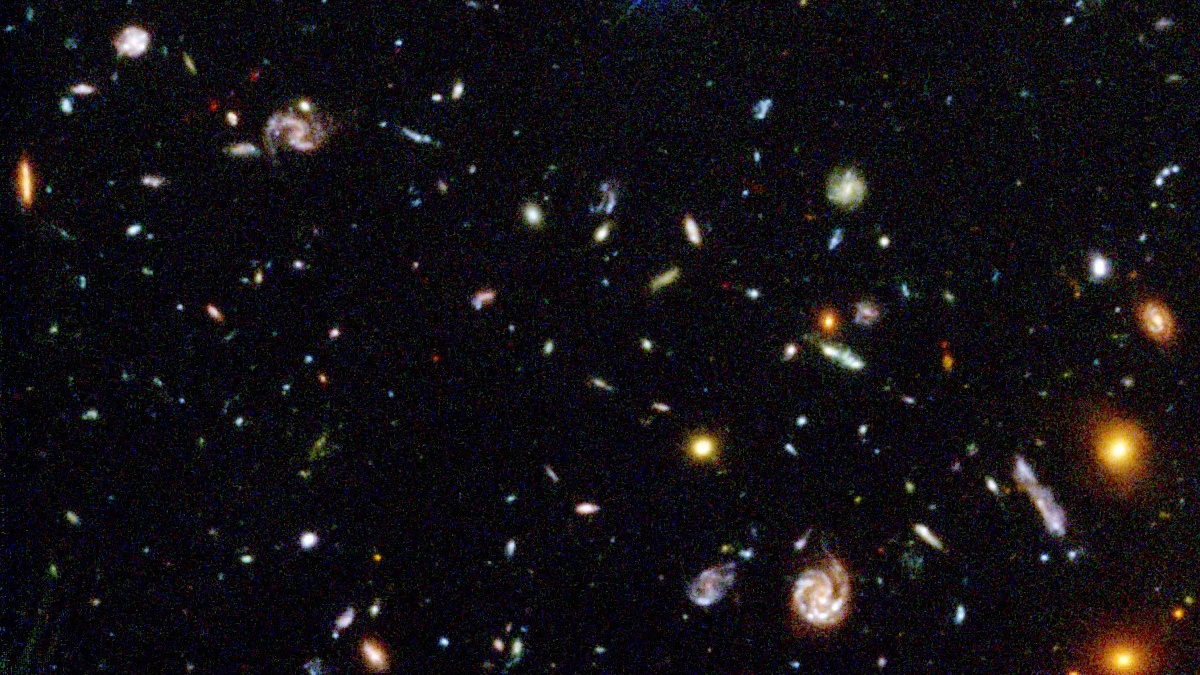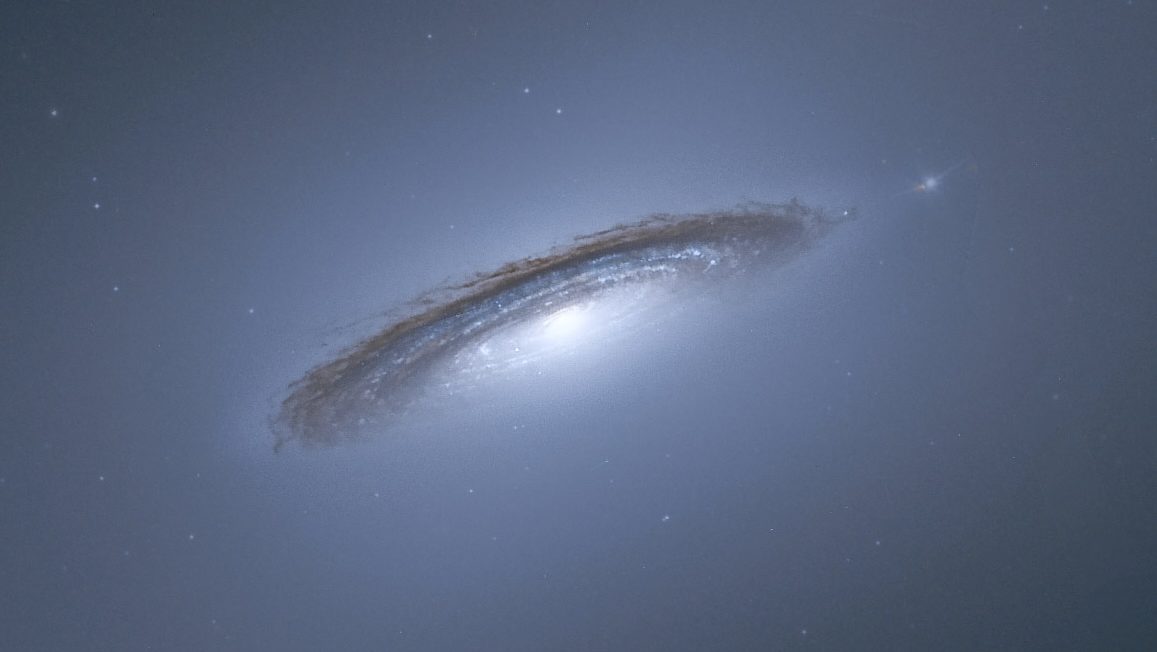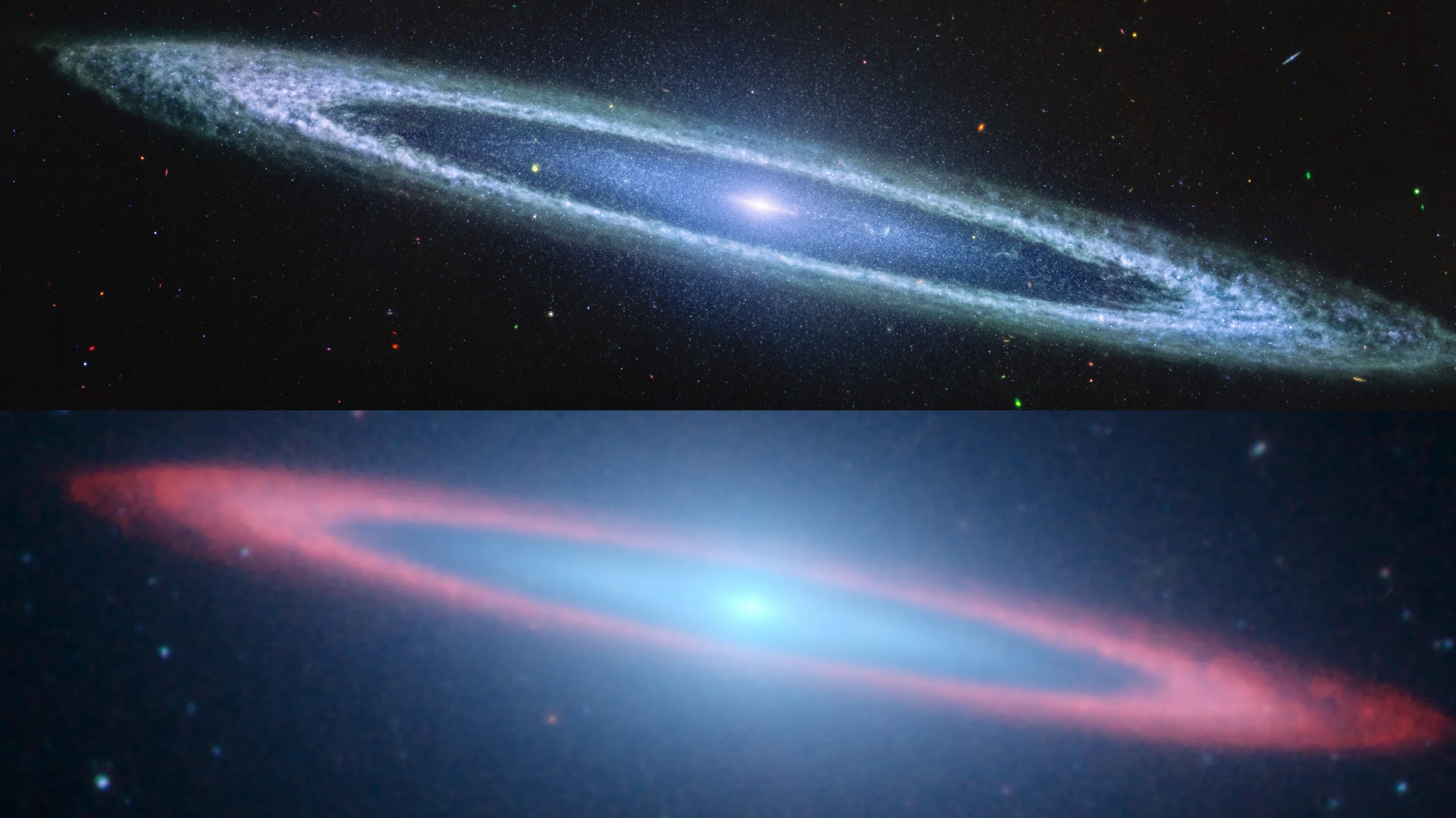Mostly Mute Monday: The Cosmic Sombrero
The closest, brightest edge-on galaxy gives us a view like nothing else.
“Since man, fragment of the universe, is governed by the same laws that preside over the heavens, it is by no means absurd to search there above for the themes of our lives, for those frigid sympathies that participate in our achievements as well as our blunderings.” –Marguerite Yourcenar
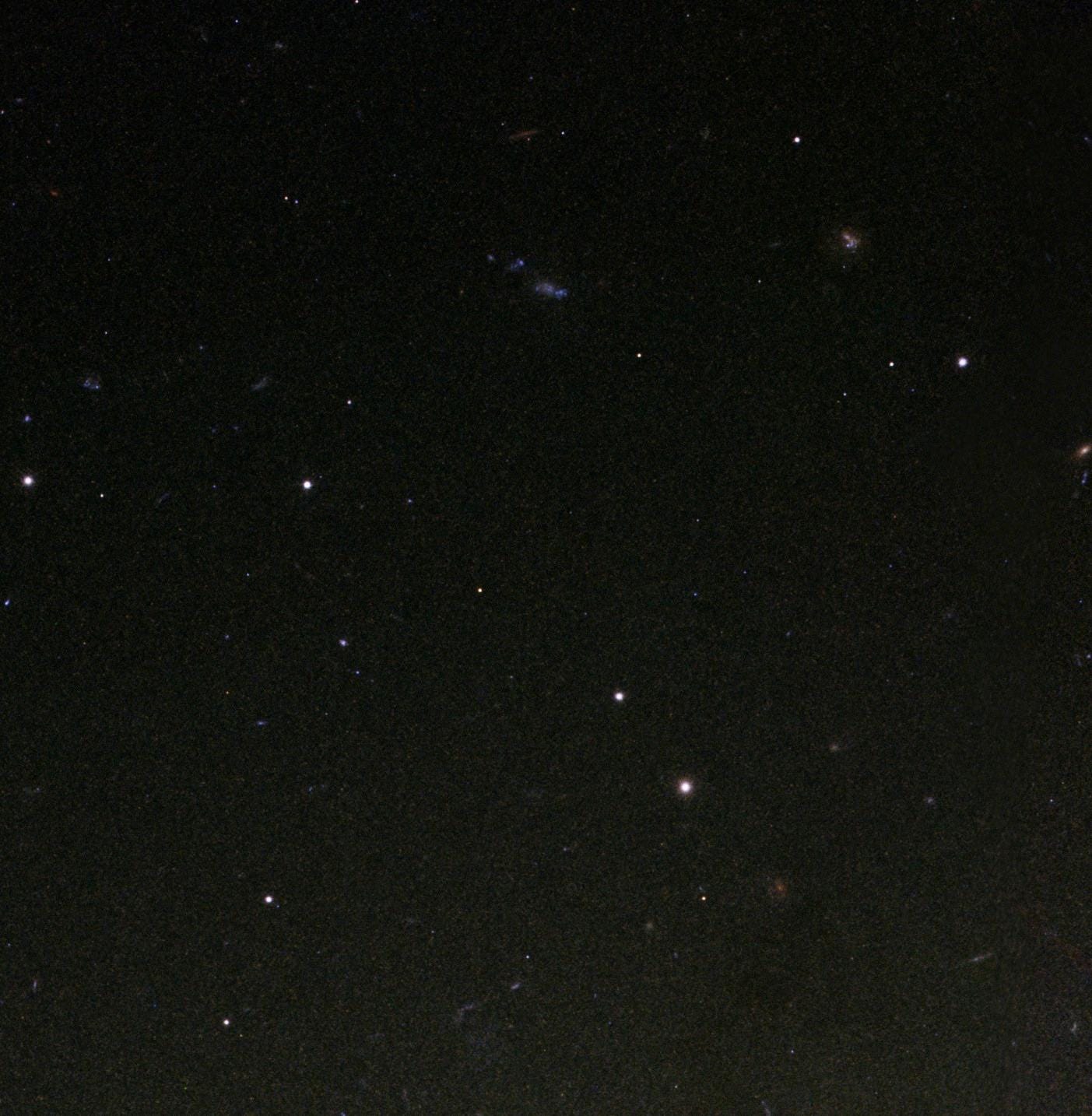
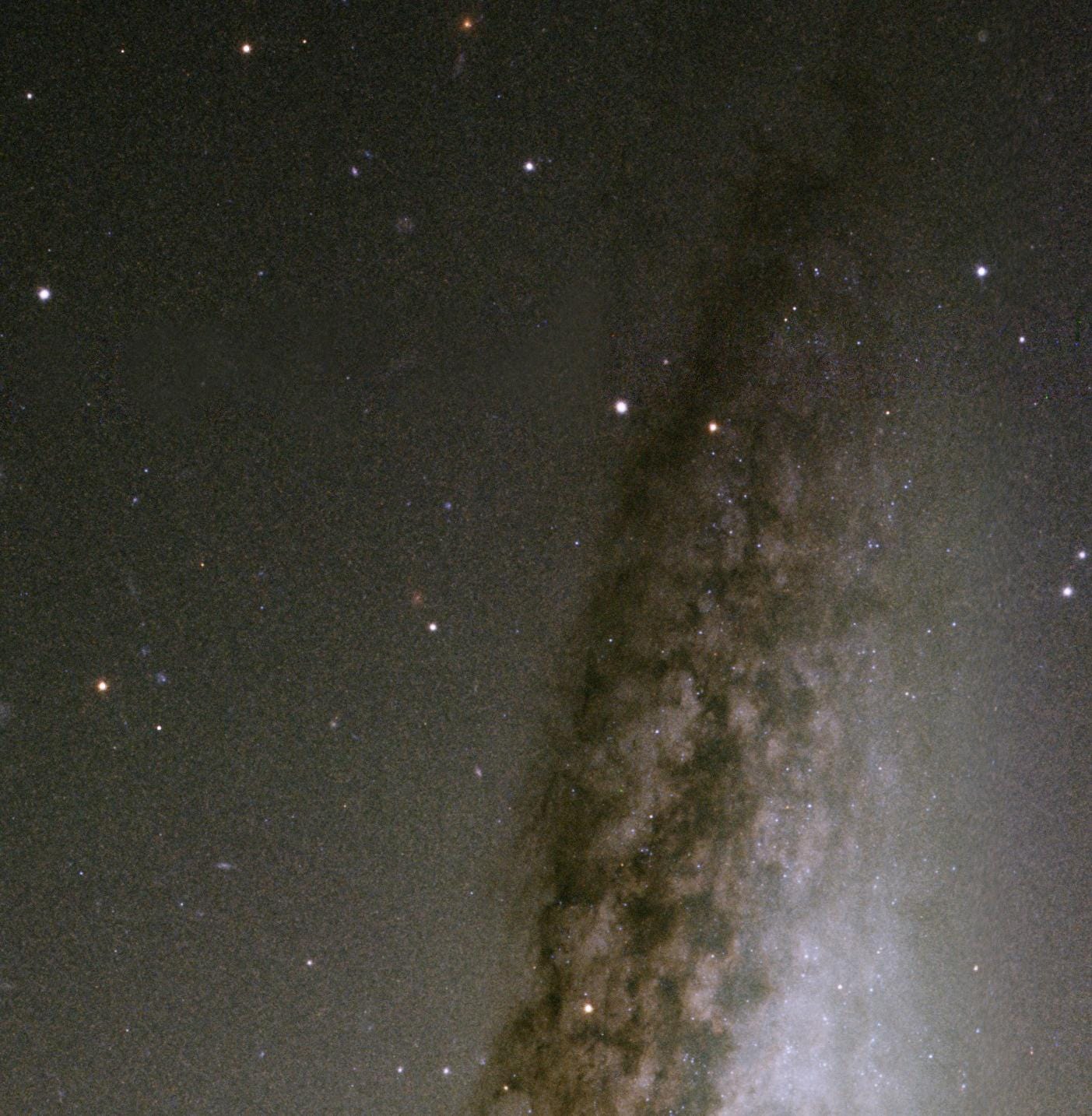
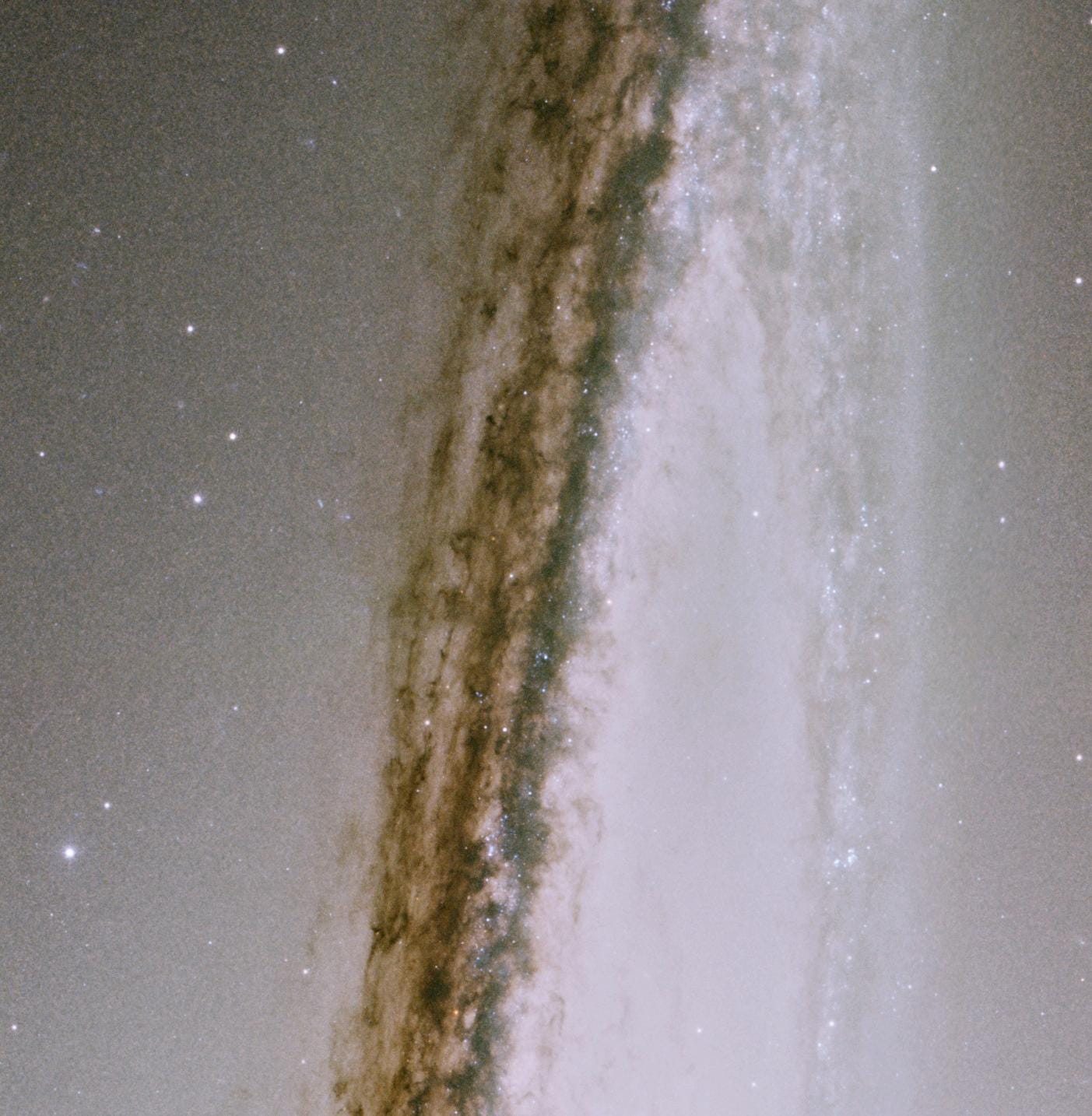
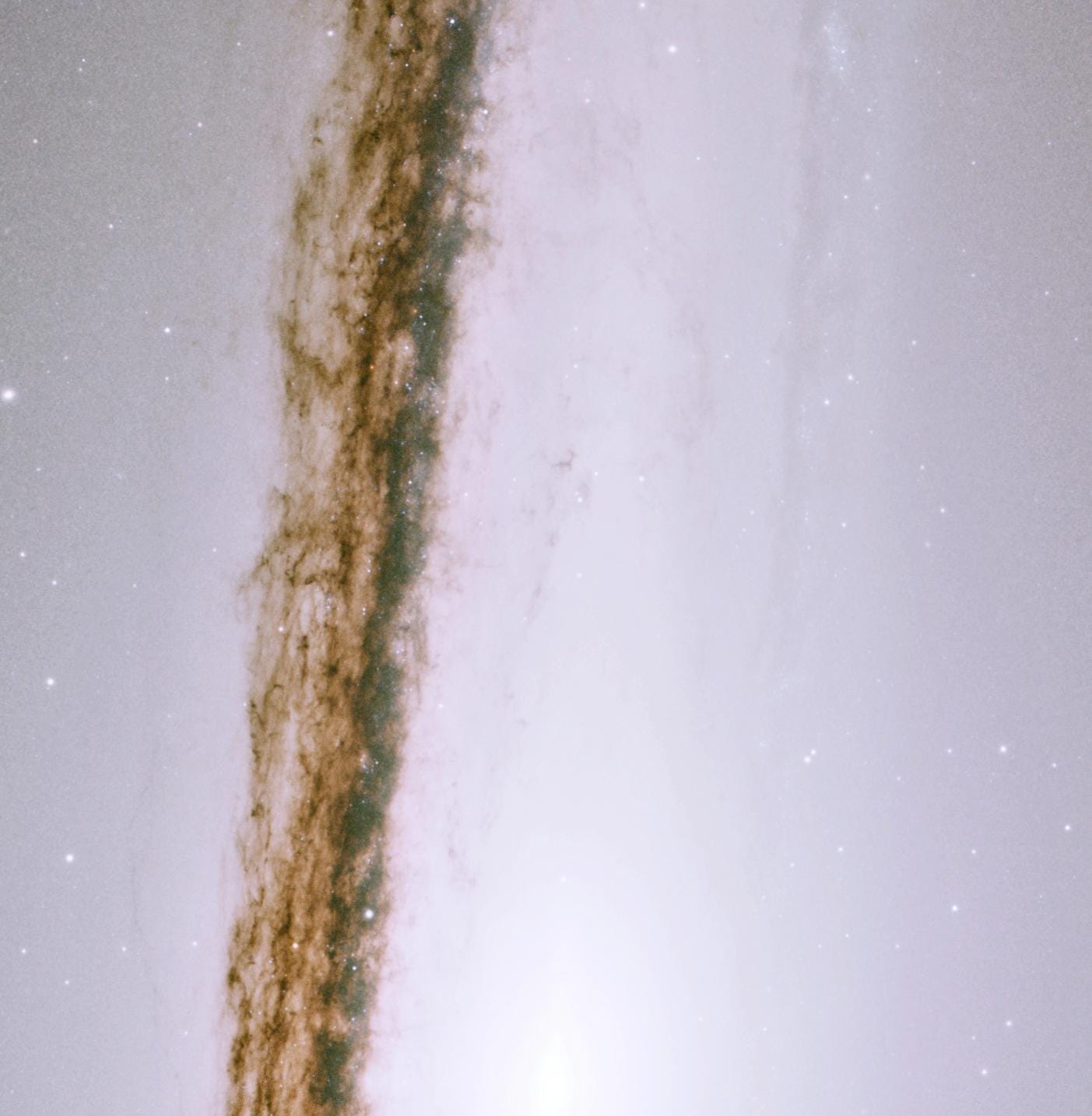
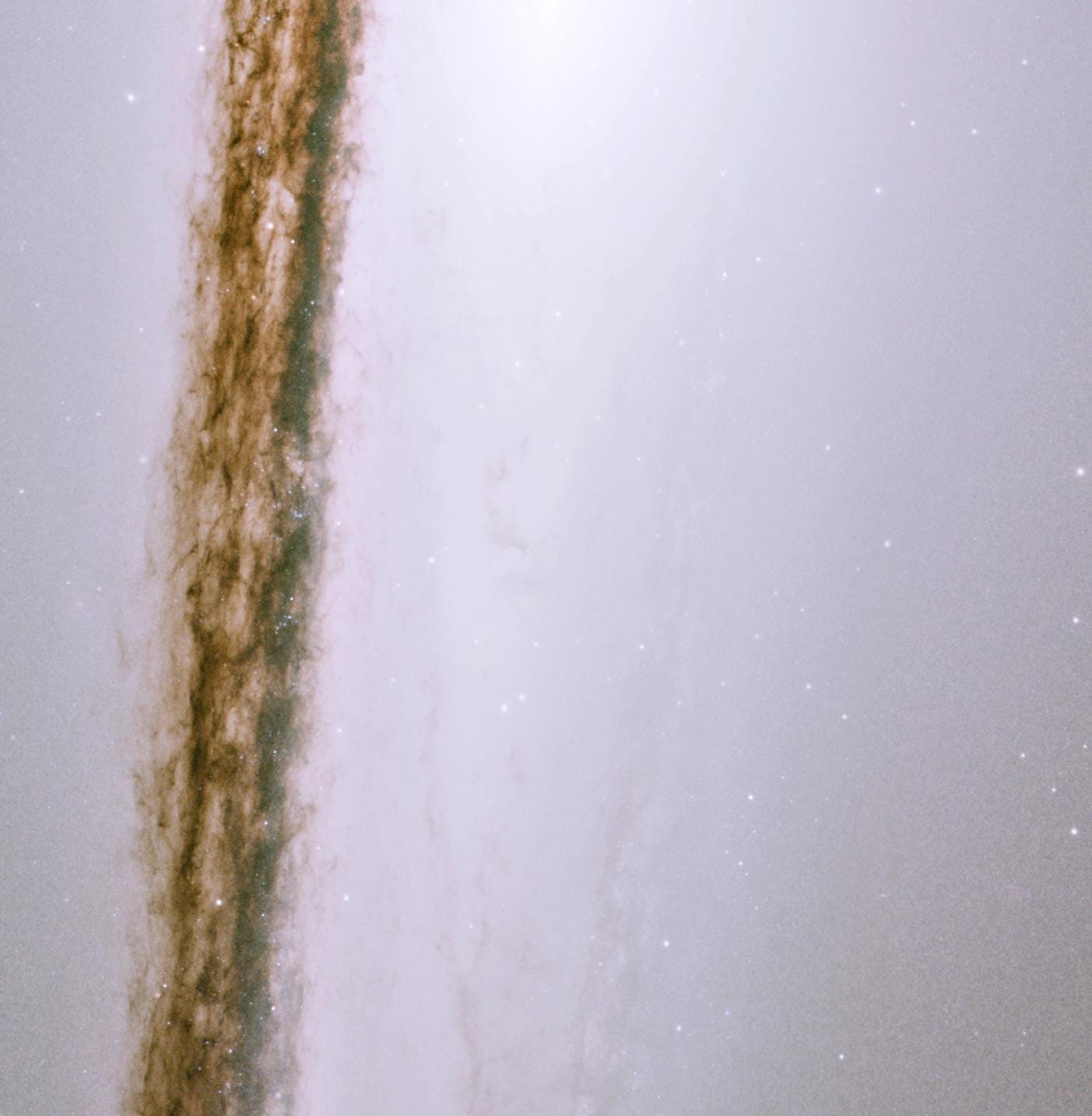
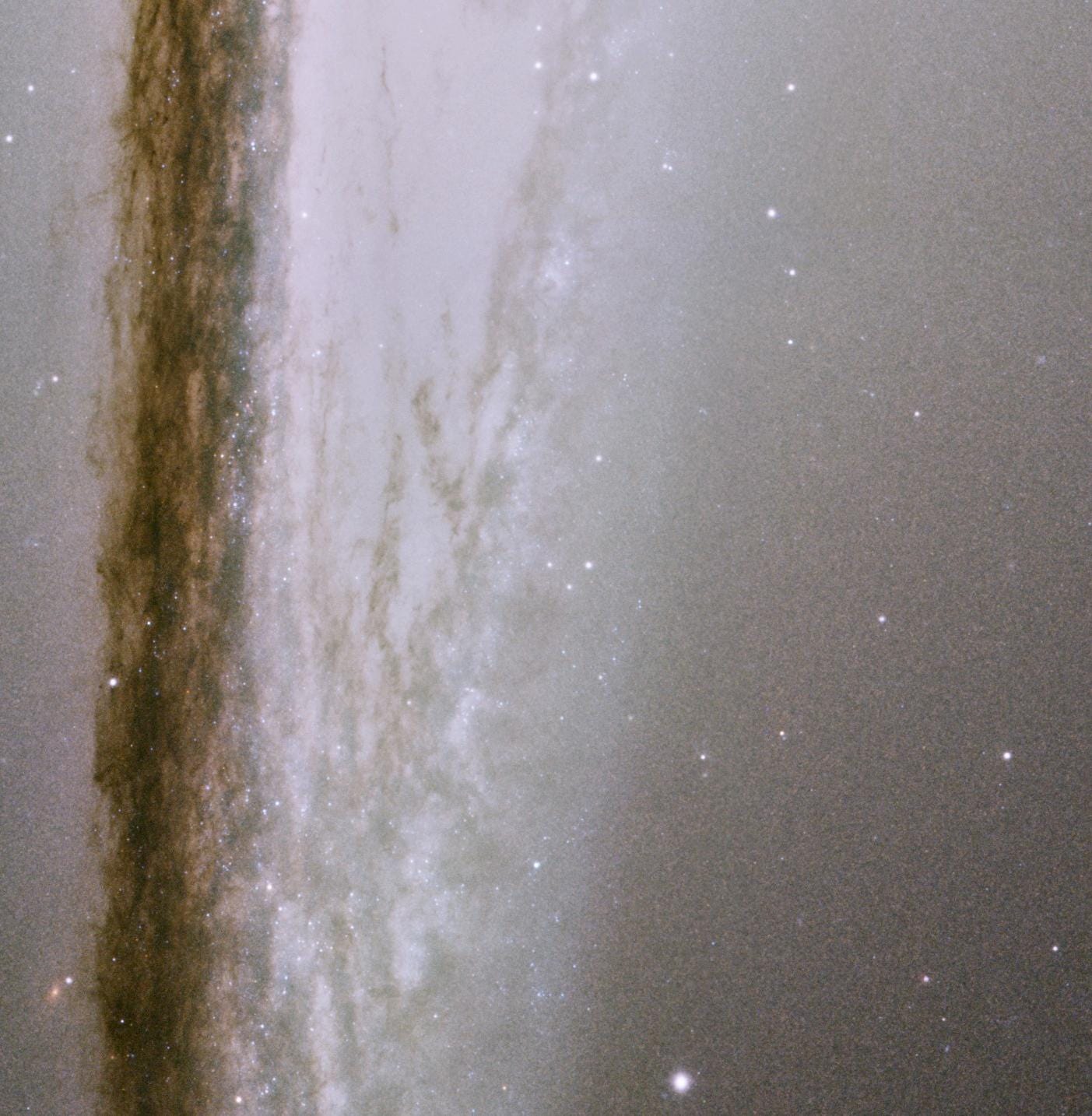
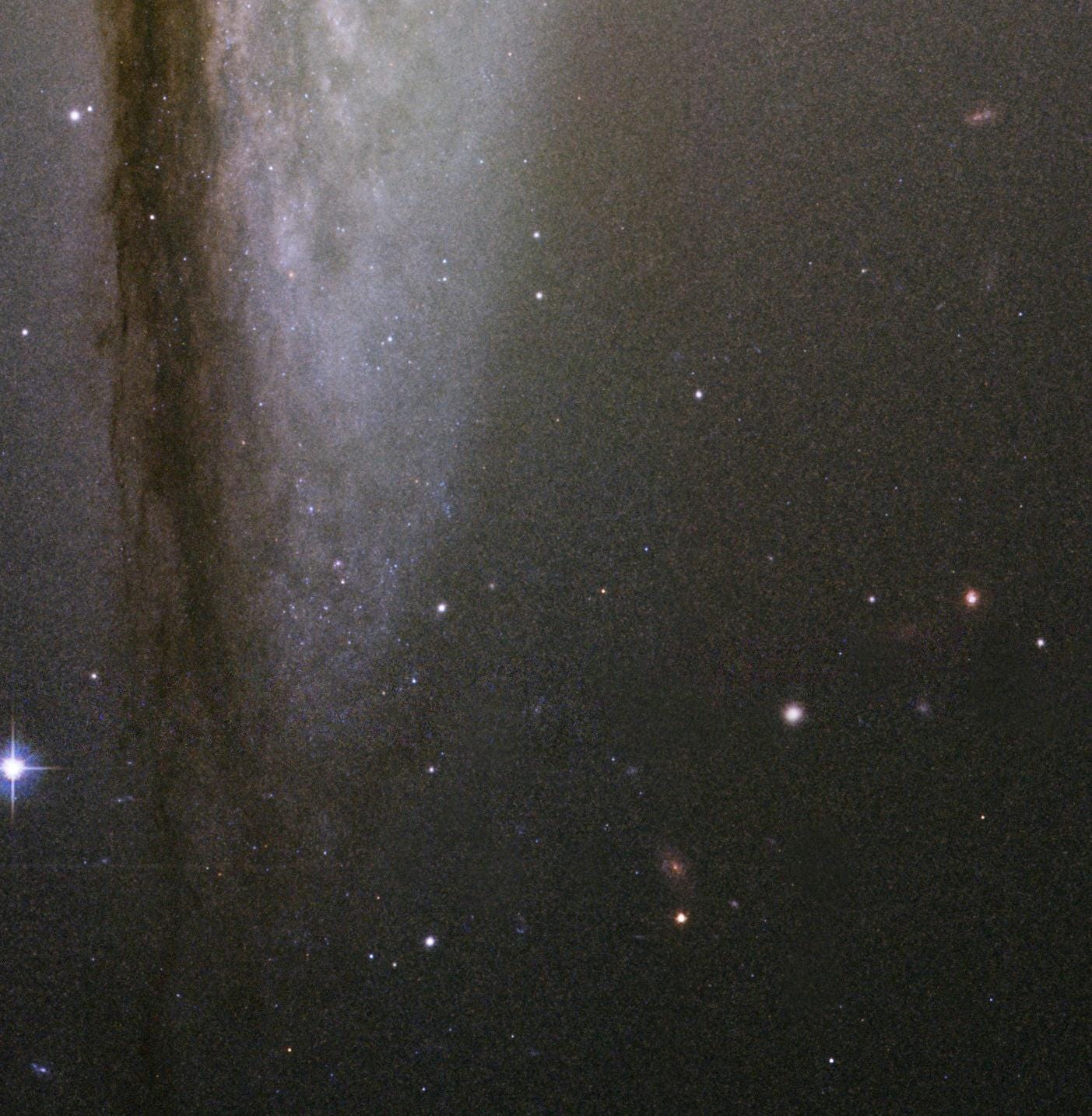
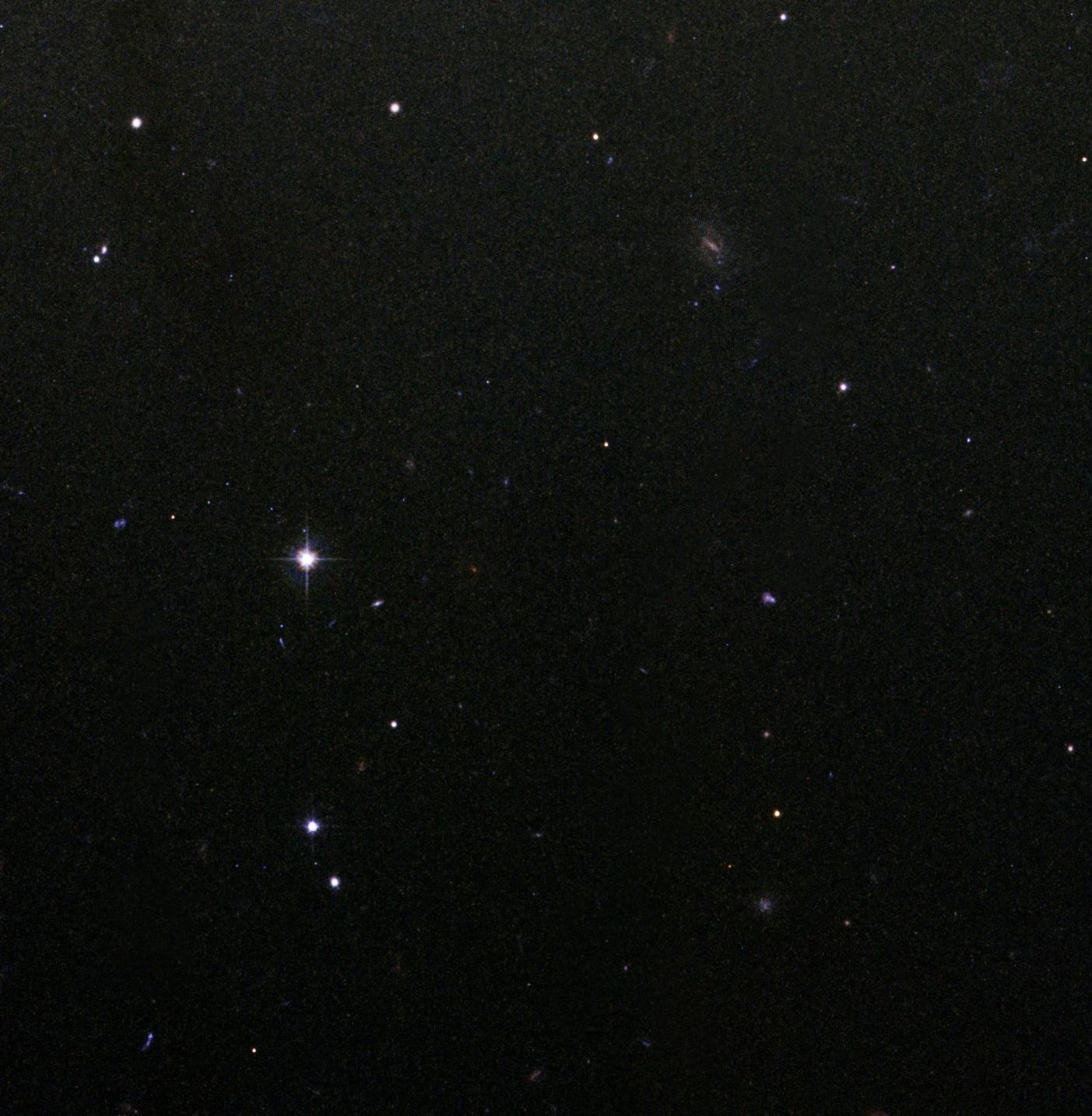
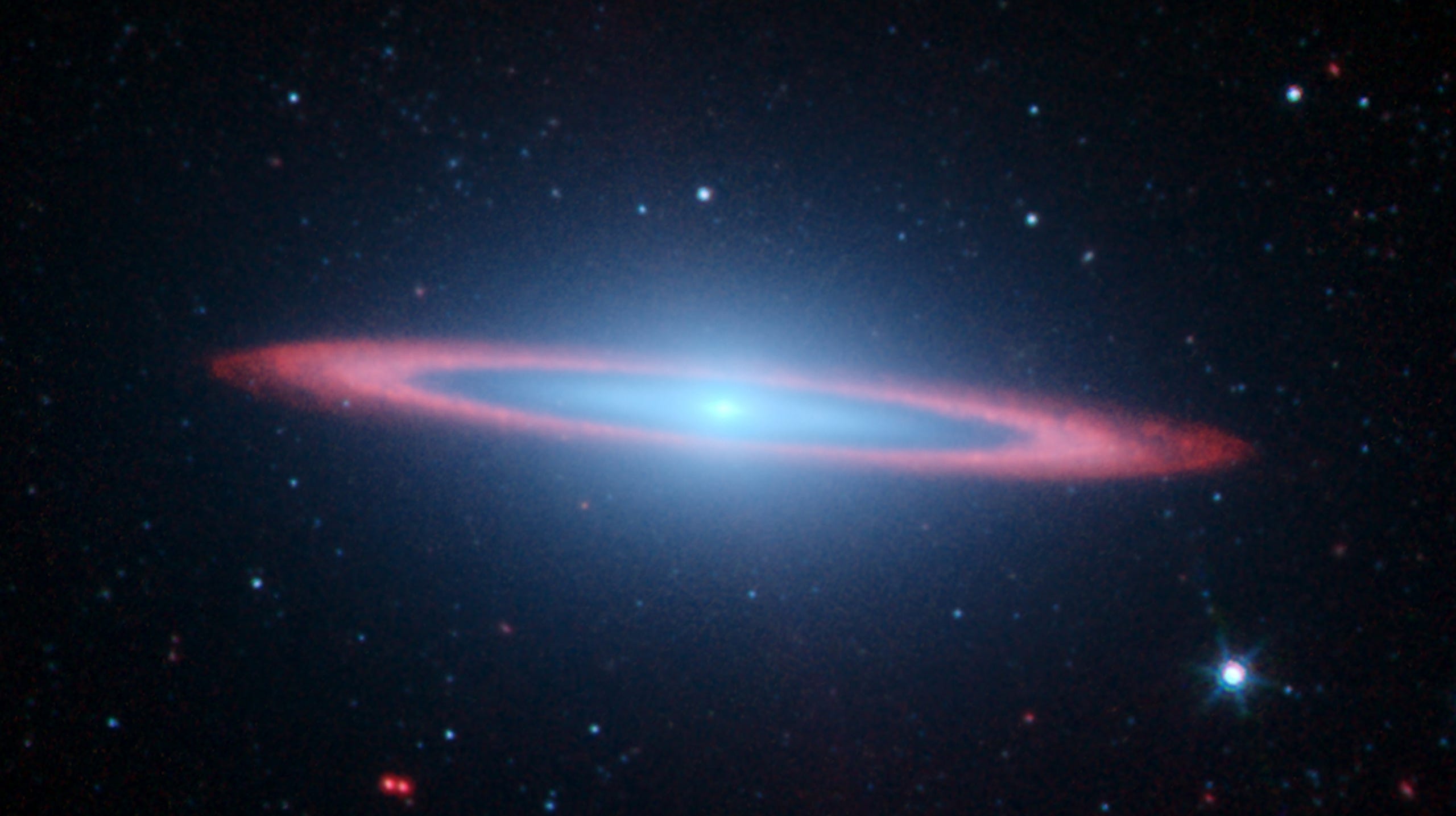
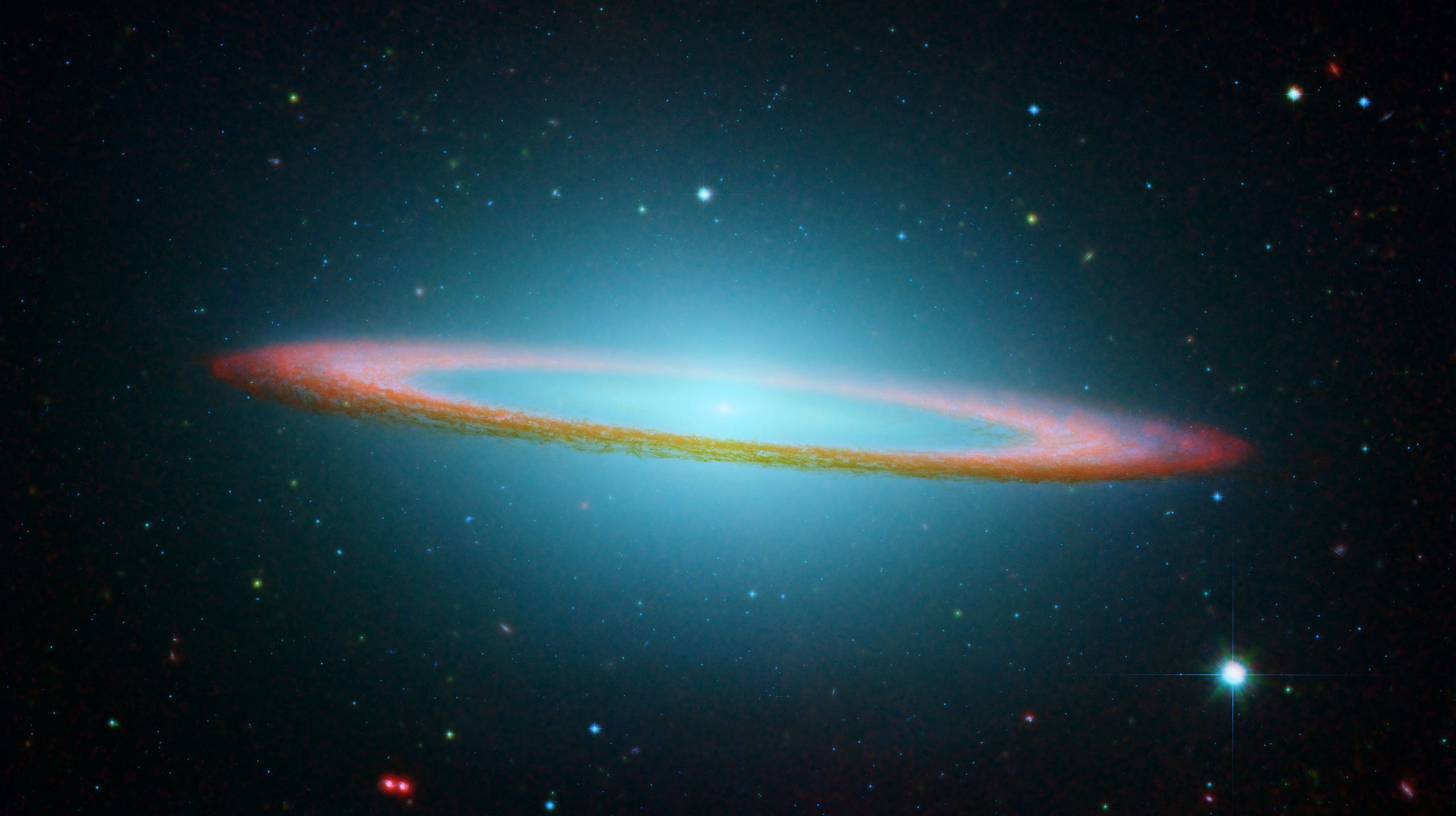
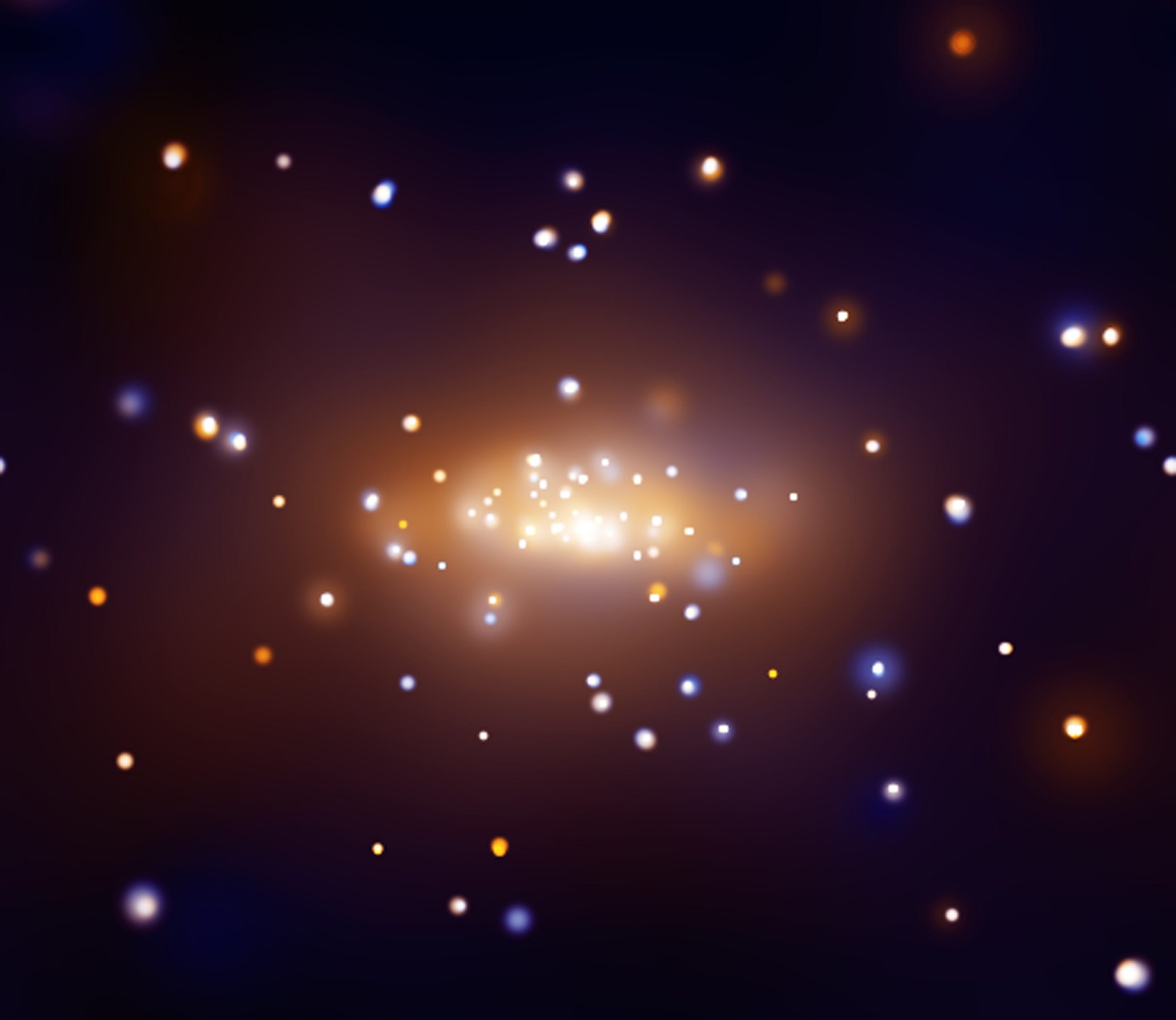
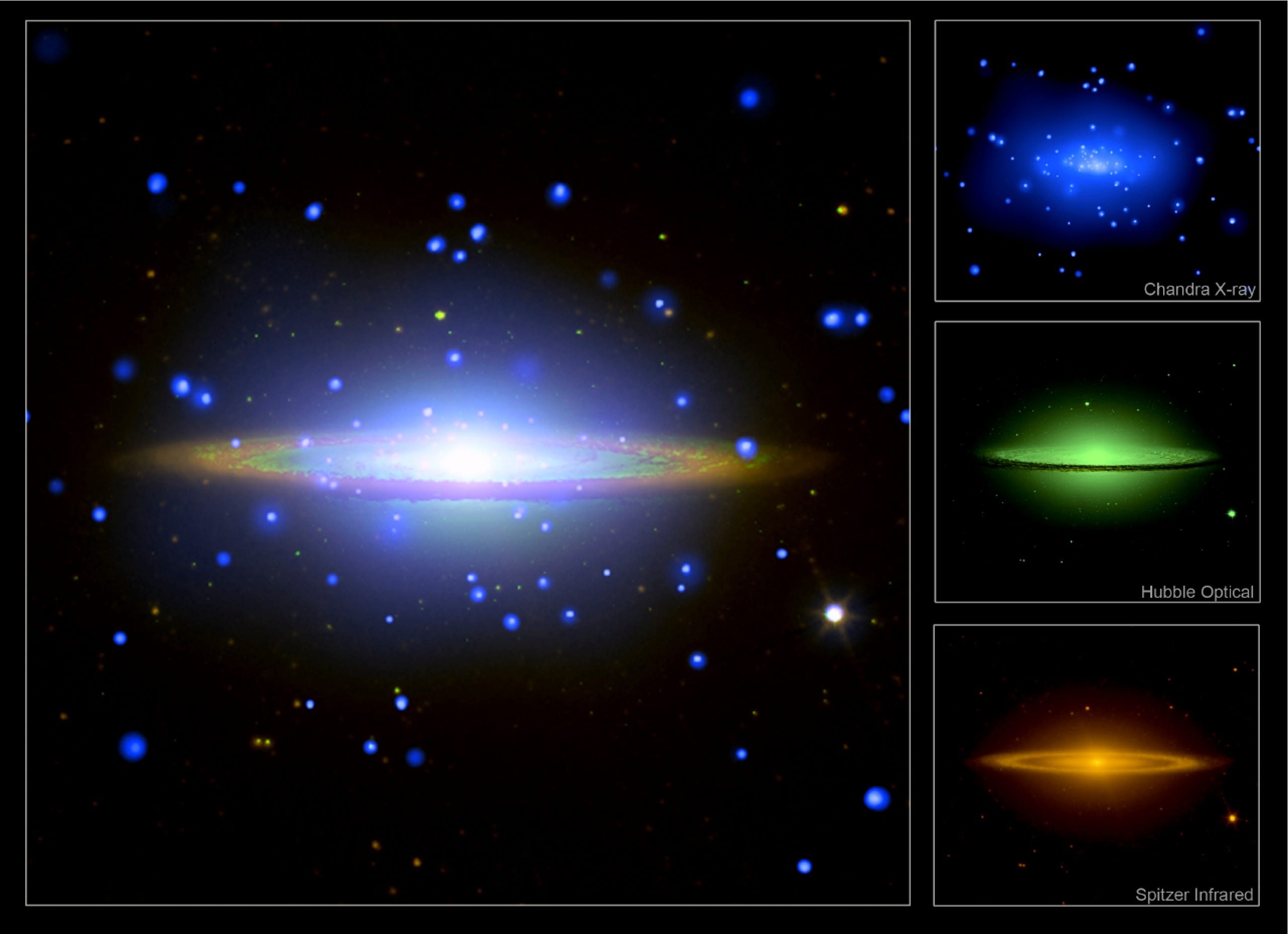
Located a mere 29 million light years away, the Sombrero Galaxy is oriented nearly perfectly edge-on to us, inclined at a mere 6° to its equatorial plane. Despite having many properties typical to spiral galaxies, including arms and prominent dust lanes, its elliptical, bulge-like component actually extends much farther than the spiral part, containing both more mass and more stars than the disk, with double the stars our own galaxy possesses. In addition, the Sombrero contains over 1,000 globulars and a billion solar mass black hole, both properties normally exclusive to ellipticals.
However, the elliptical component can be removed with advanced image processing (below), revealing that the Sombrero galaxy does, indeed, have all the properties of a spiral galaxy as well. Thought to have formed via multiple mergers of relatively small galaxies with a single, dominant spiral in its group, the Sombrero is arguably the brightest galaxy beyond our local group before you get to the Virgo Cluster. All this, despite being merely half the diameter of the Milky Way! Thanks to Hubble, we can resolve individual stars at this great distance, an unthinkable feat just a generation ago.
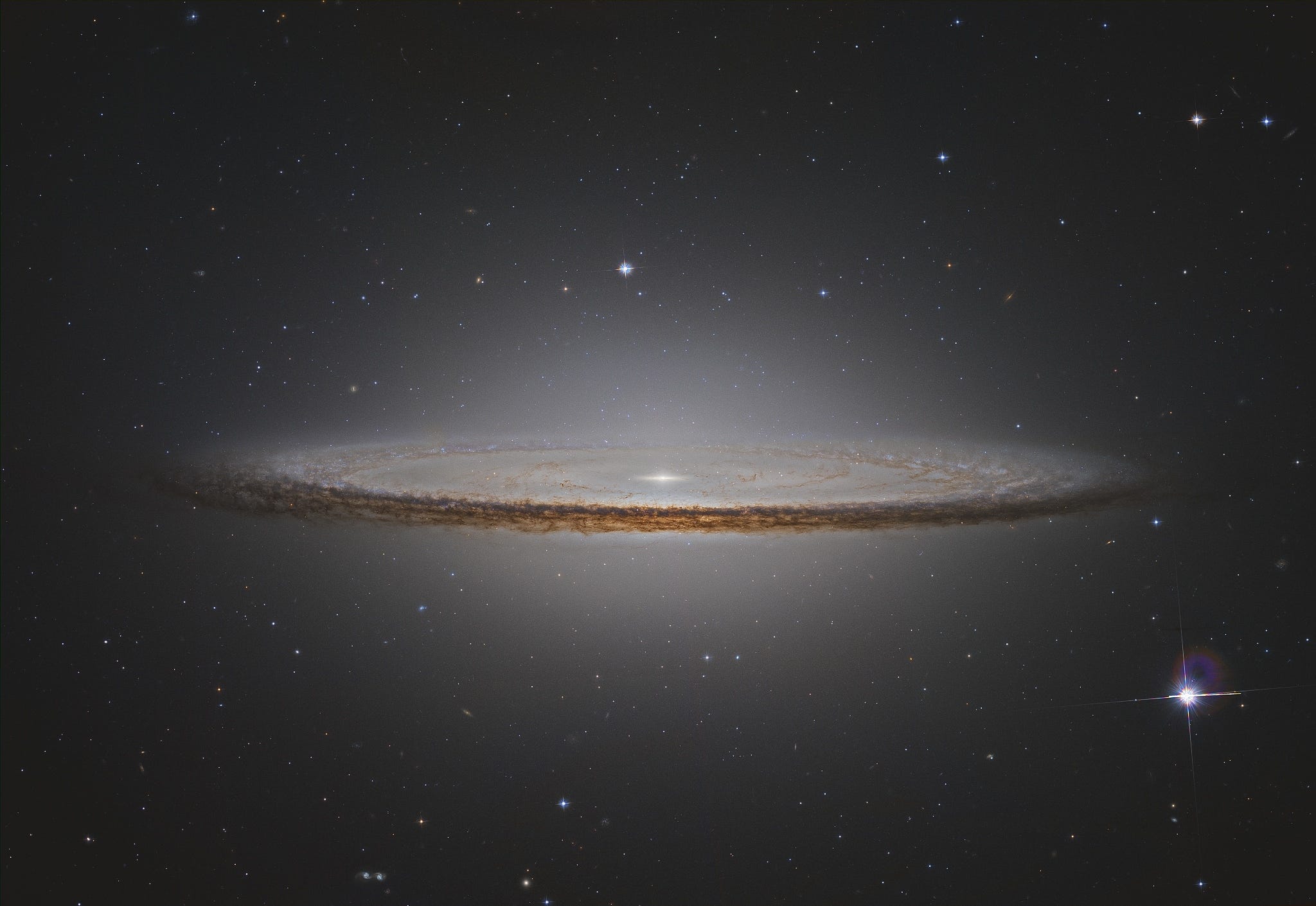
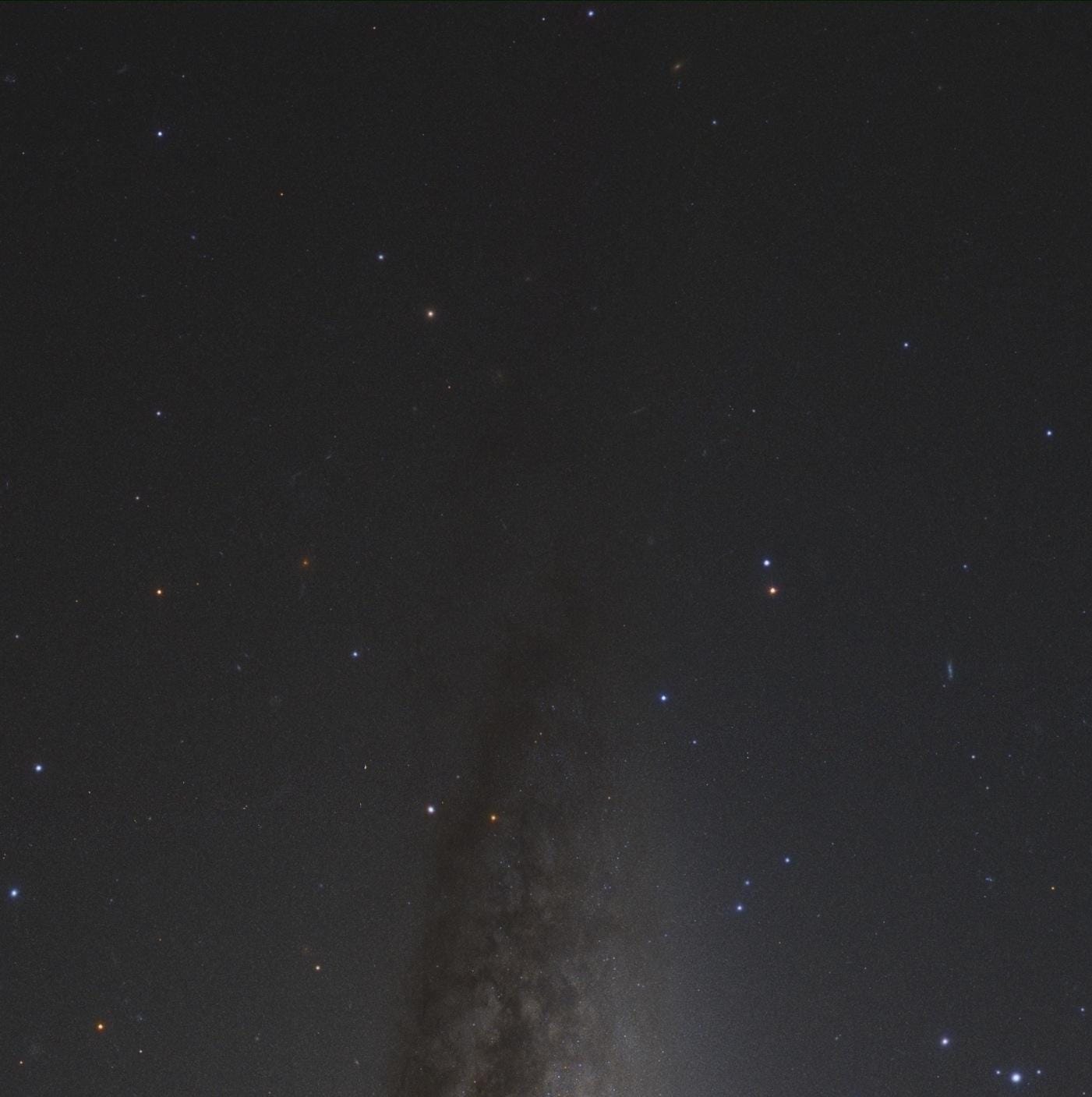
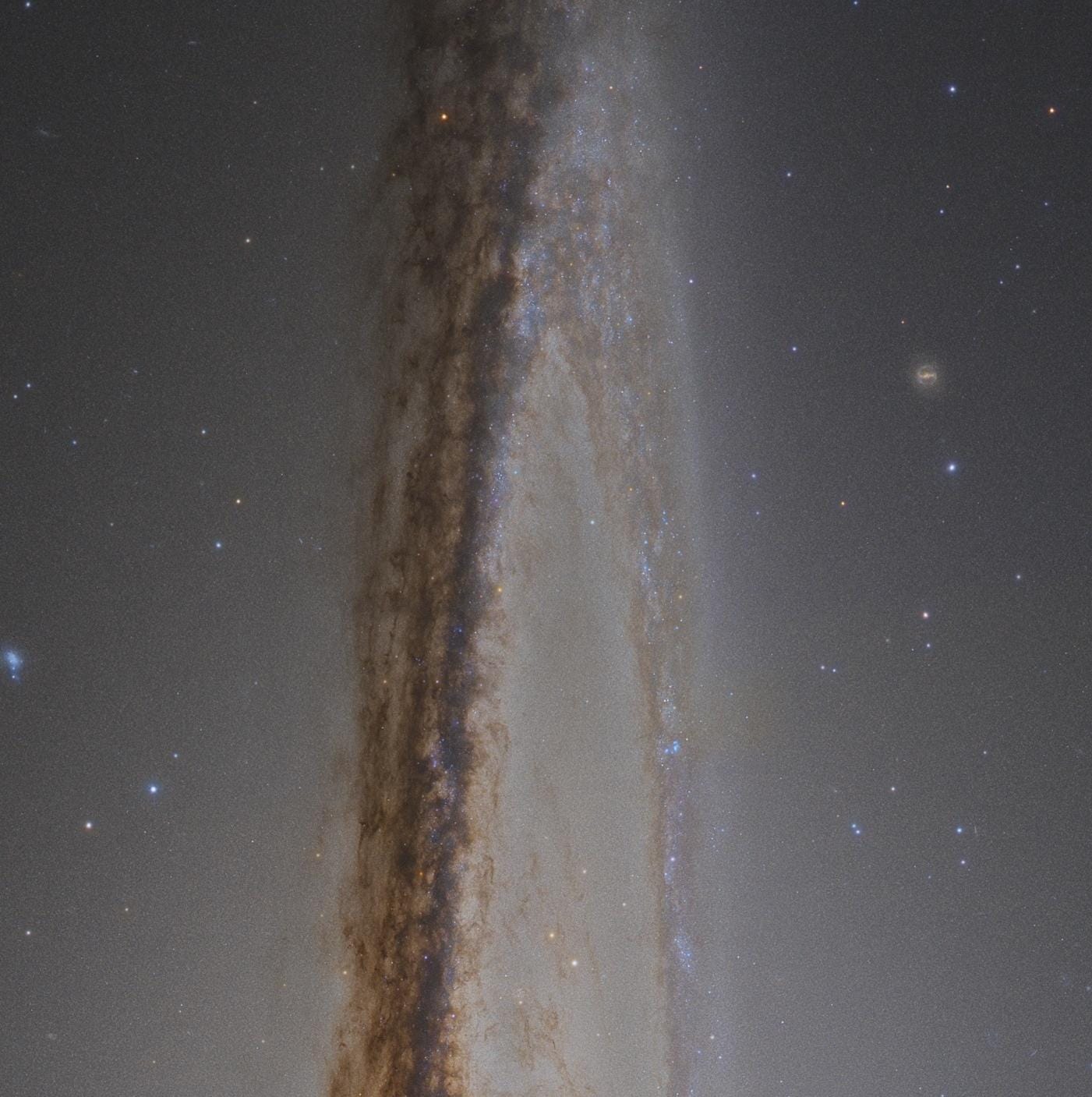
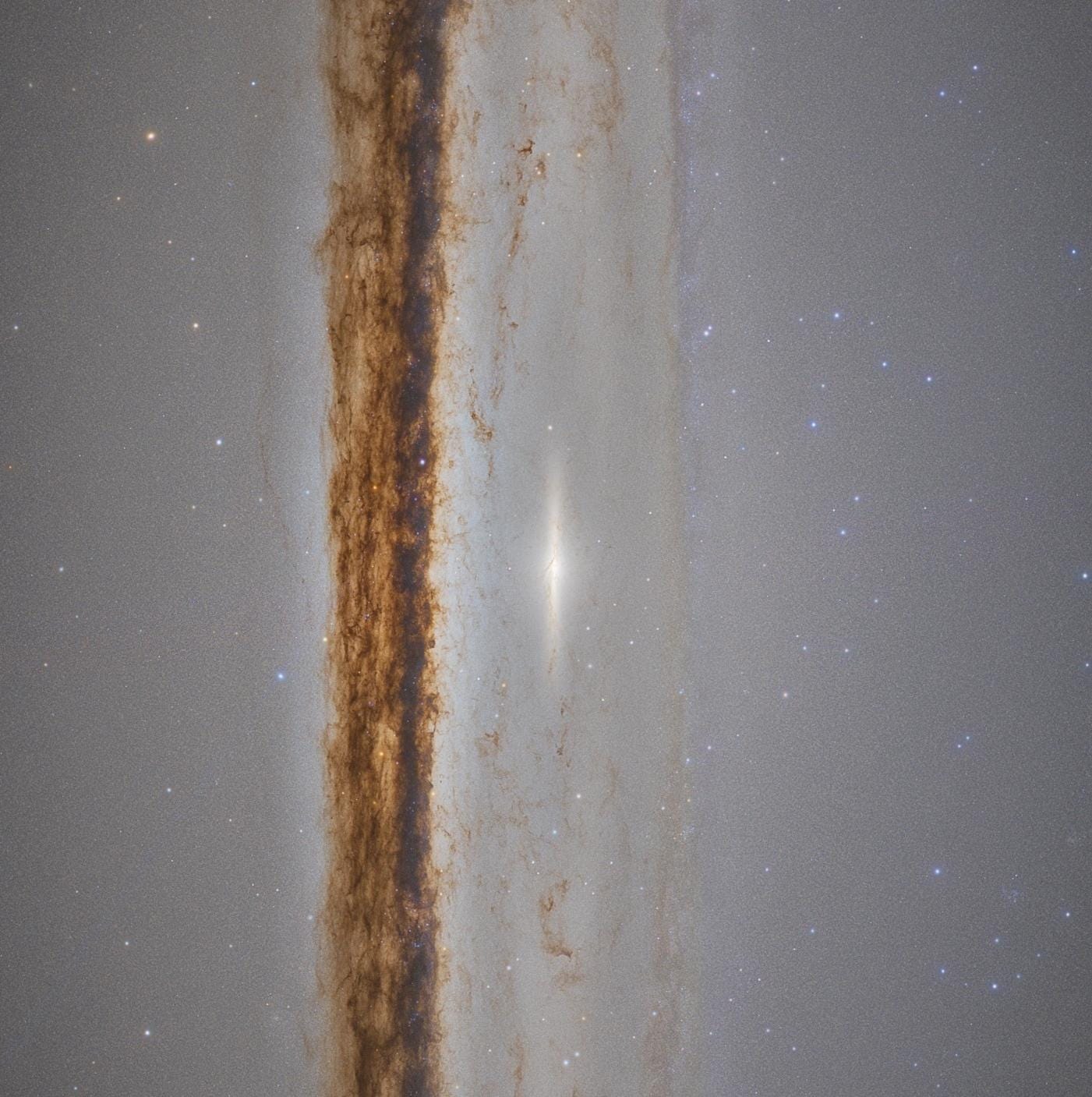
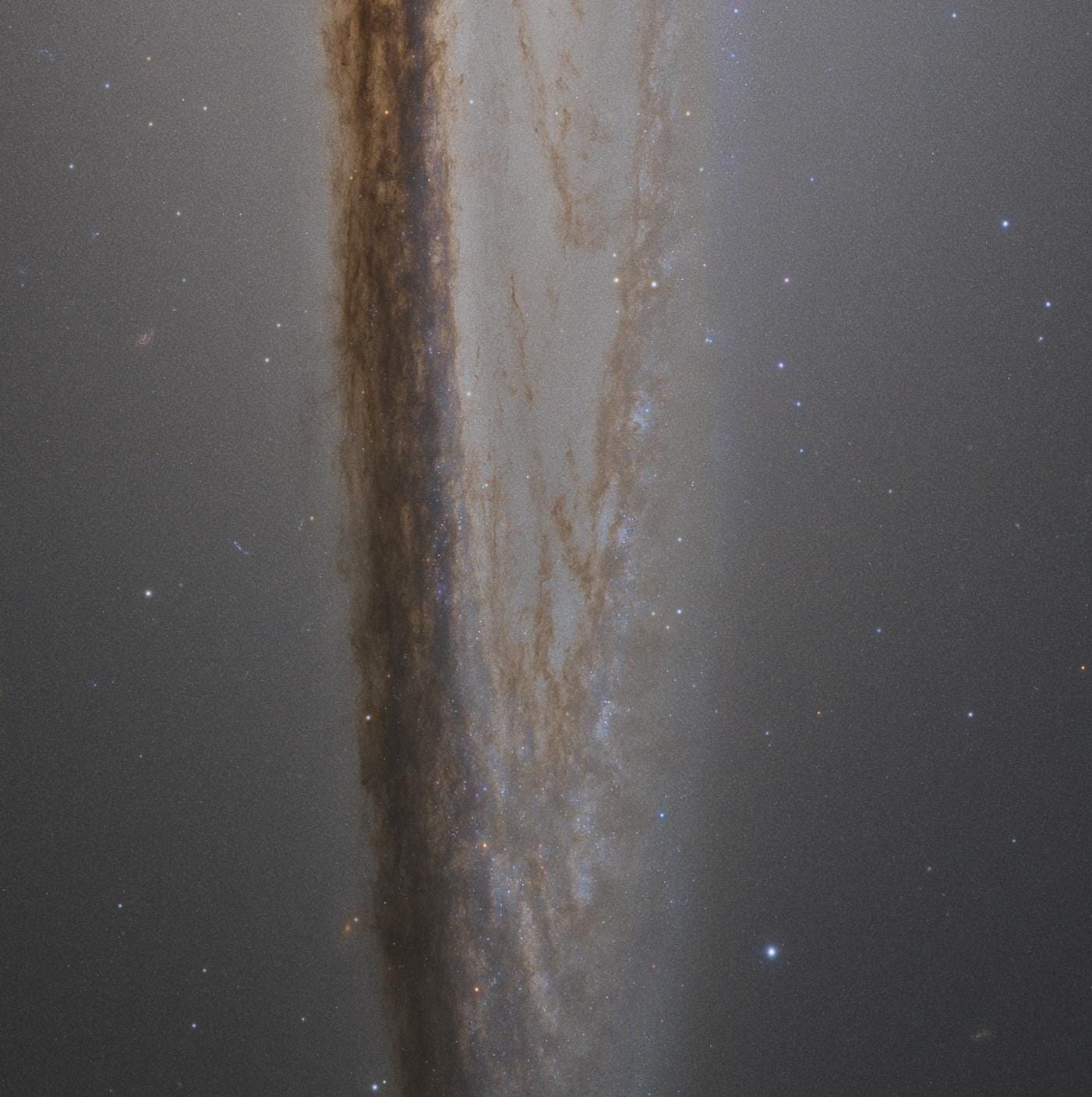
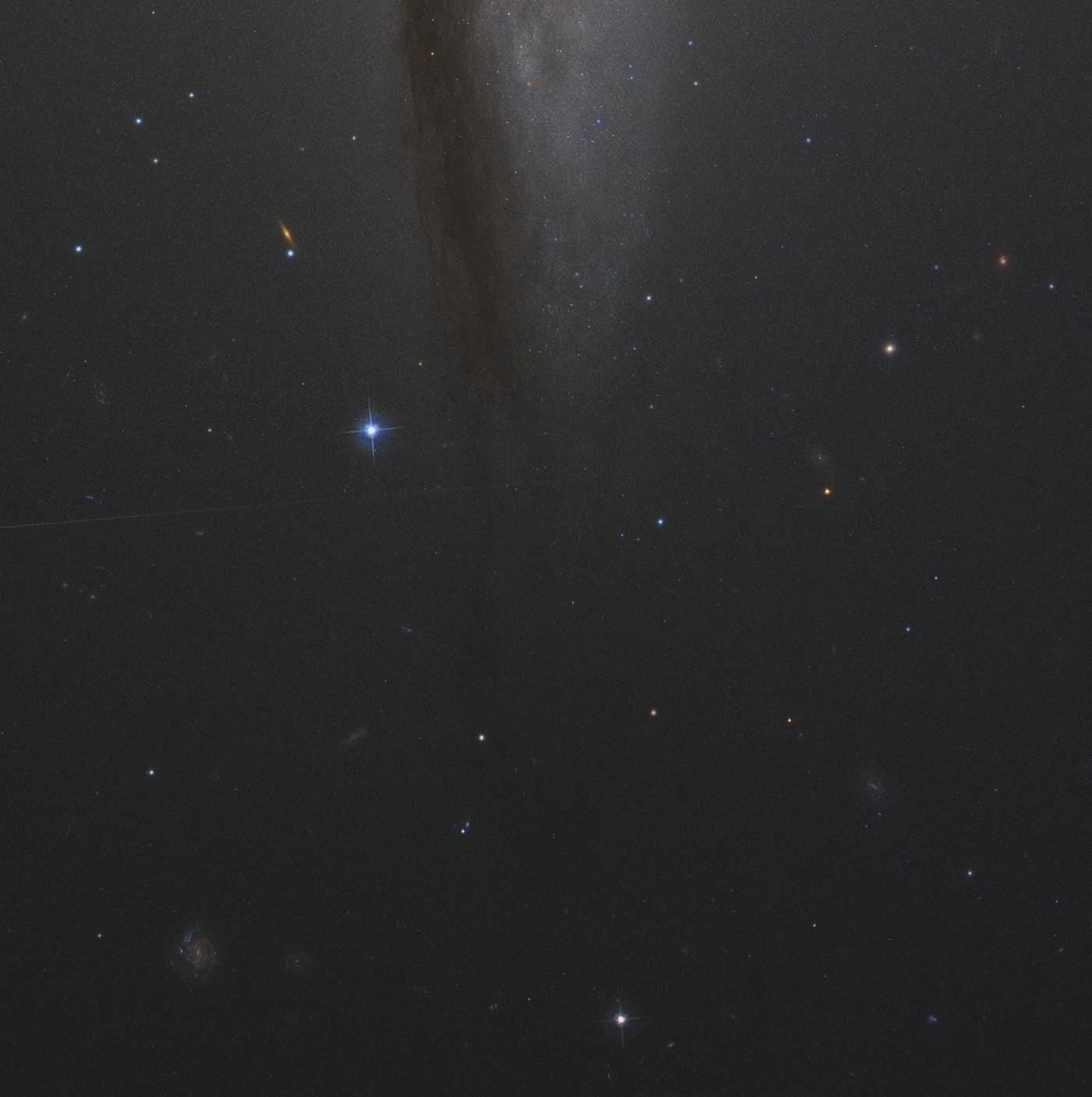
Mostly Mute Monday tells the story of a single object in images, videos, and 200 words, maximum. To celebrate Hubble’s 25th anniversary, the month of April, 2015, will focus exclusively on objects imaged with the Hubble Space Telescope.
Leave your comments at the Starts With A Bang forum on Scienceblogs!

